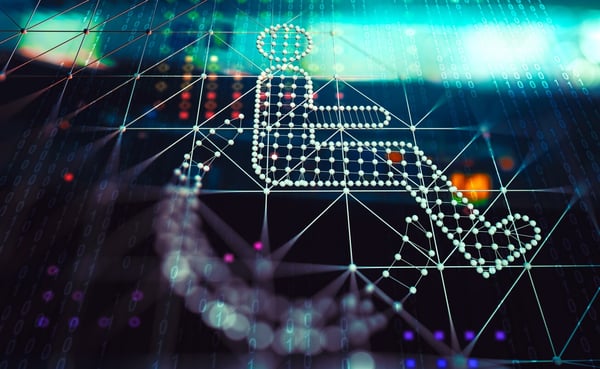In August of this year, the United Nations issued much-need guidelines to member countries’ justice systems, to ensure those with disabilities are awarded the same access and ease of use as their peers. Specifically, the new guidance is intended to address the myriad of challenges that disabled individuals face when accessing the justice system. Barriers are a frequent problem for those with disabilities, and the justice system is no exception.
This collaboration by the United Nations to dismantle institutional barriers that hinder individuals with disabilities from gaining access to the justice system draws attention to how the United States currently tries to do the same.
The Americans with Disabilities Act (ADA)
In 1990, The Americans with Disabilities Act (ADA) became law to prohibit discrimination against disabled individuals. This legislation was comprehensive, offering protections for education, transportation, jobs, and access in private and public places. The goal was to create an even playing field for people with disabilities, so they’re given the same opportunities and rights as their peers. It was also designed to guarantee access to telecommunications, government services on local and state levels, and public accommodations. Altogether, the ADA has five sections that guide the many areas of public life that disabled people did not previously have an equal opportunity to access.
On January 1, 2009, the Americans with Disabilities Act Amendments Act (ADAAA) became effective. This legislation changed the definition of what disability meant and applied these modifications to all ADA sections.
Ensuring Equality in the Criminal Justice for the Disabled
In addition to the ADA and the ADAAA, Criminal justice entities must avoid discriminating against the disabled. Title II of the ADA addresses this specifically with its essential guidance for law enforcement, correctional facilities, courts, and counsel to prevent and address any issues of discrimination against individuals with disabilities. This means creating a justice system that treats them equally and provides the same opportunity as their peers to access a safe, inclusive community.
Some of the requirements set forth by Title II emphasizes the importance of nondiscrimination. This could be in the form of modified procedures, policies, practices to accommodate and ensure that these agencies communicate effectively with the disabled. Further, ADA legislation supports avoiding unnecessary involvement with the justice system and the promotion of public safety.
Why the ADA Is the First Critical Step in Equal Access
Statistics show people with disabilities experience being arrested, victimized, criminally charged, and even recipients of harsher prison sentences than their non-disabled peers. For many in this protected class, once they get involved with the justice system, the bias and lack of accessibility to legal services make their involvement cyclic.
The unfortunate reality is that believing equal access to the justice system should be available to all is difficult to enforce. One of the largest categories of complaints that federal agencies receive revolves around disability-related issues. From having issues with fair housing enforcement to creating physical accessibility to government offices and public businesses, the disabled face an uphill battle every single day of their lives.
Their ongoing challenges highlight issues with ADA legislation, as it currently lacks the complete ability to guarantee disabled Americans' rights and adequately prevent them from being marginalized in society. Its impact on the relationship between the justice system and people with disabilities has much room for improvement.
Title II of the ADA is clear that discrimination against the disabled is strictly prohibited in state and local government agencies, programs, employment, and services. This includes law enforcement, public defenders, courthouses, prisons, and any agency related to the justice system. Everything provided by such entities is overseen by this legislation to equalize access for all.
Next Steps for Creating Equal Access to the Justice System
To successfully ensure disabled Americans gain critical access to the justice system and are no longer marginalized or excluded is a frustrating process but offers hope in the long run. Even on a global level, one can see that not a single nation has met this challenge completely, though some are making significant strides in the right direction.
Some of the more readily available solutions to allow those with disabilities equal access to justice in the U.S. would include removing all barriers--whether subconscious bias or through legislation, and even those that are physical in building and design. With the right training programs and advocacy, eliminating cognitive barriers that manifest through poor oversight and bias can create a justice system that is truly universal and accessible for all.
If you find this news recap informative, sign up for our newsletter here so you can stay up to date on everything our blog offers, from legal industry news, interviews, insight, and technology, to industry regulation and legislation updates.
About ABC Legal Services
ABC Legal is the nation’s leading service of process and court filing company and is the official process server to the U.S. Department of Justice. Docketly is a subsidiary of ABC Legal, providing appearance counsel on a digital, custom-built platform that smoothly integrates with our applications and services. ABC Legal’s applications are cloud-based and compatible for use on desktop, browser, and smartphones. Our solutions and digital approach ensure process server partners, law firm customers, and their clients save valuable time and resources when serving legal notices safely and with maximum compliance, control, and transparency. ABC Legal is based in Seattle, WA, with more than 2,000 process servers throughout the U.S., as well as internationally in more than 75 countries. To learn more about ABC Legal, our solutions and subsidiary company Docketly visit www.abclegal.com.
About the Author
Sascha Mehlhase is the Vice President of Products and Innovation at ABC Legal Services. He oversees ABC Legal’s growing product, marketing and customer experience. With nearly 20 years of product and marketing experience in software and technology, Mehlhase has advanced product strategies and led global teams in a variety of industries. Most recently, as Senior Director of Product Management at Intrado, he oversaw their cloud-based telecom and communications platform as a service business and drove the company’s international product expansion into more than 170 countries. Sascha earned an MBA from Loyola University Chicago and a bachelor’s in social economics from Hamburg University in Germany.

Written by
Tim DinehartService made simple—down the road and across the country. Join the 50,000+ professionals who trust ABC Legal for service of process.








